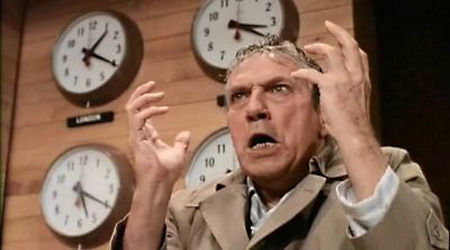6 milliards d'Autres et moi, et moi, et moi...
Although I'm still no fan of Yann-Arthus Bertrand, I do appreciate the kinds of questions he's getting at in this formulaic though very French, inquisitive, philosophical set of questions.
Entre 50 et 300 entretiens ont été réalisés par pays. Chaque interviewé s'exprime face caméra et répond à 40 questions. Les voici :
01 | Commencer l'interview en demandant à la personne de se présenter en donnant son nom, son âge, sa profession, sa situation familiale et sa nationalité.
02 | Quel est votre métier ? L'aimez-vous ?
03 | Que représente la famille pour vous ?
04 | Qu'avez-vous envie de transmettre à vos enfants ?
05 | Qu'avez-vous appris de vos parents ?
06 | Qu'est-ce qu'il est difficile de dire à ses enfants ? À sa famille ?
07 | Quelle est votre plus grande joie ?
08 | Quelle est votre plus grande peur ?
09 | Qu'est-ce qui vous met le plus en colère ?
10 | De quoi rêviez-vous quand vous étiez enfant ?
11 | Quel est votre plus grand rêve aujourd'hui ?
12 | À quoi avez-vous renoncé ?
13 | Êtes-vous heureux ? Qu'est-ce que le bonheur pour vous ?
14 | Qu'aimeriez-vous changer à votre vie ?
15 | Qu'est-ce que l'amour pour vous ? Pensez-vous donner et recevoir assez d'amour ?
16 | Quel a été votre dernier fou rire ?
17 | Quelle fut la dernière fois où vous avez pleuré ? Pourquoi ?
18 | Quelle fut l'épreuve la plus difficile à laquelle vous avez dû faire face dans votre vie ? Qu'en avez-vous appris ?
19 | Avez-vous des ennemis ? Pourquoi ?
20 | Qu'est-ce qui vous met le plus en colère ? Et pourquoi ?
21 | Pour quelle raison seriez-vous prêt à tuer quelqu'un ? Pour quelle raison seriez-vous prêt à donner votre vie ?
22 | Pardonnez-vous facilement ? Qu'est-ce que vous ne pourriez pas pardonner ?
23 | Vous sentez-vous libre ? Dans votre vie de tous les jours de quoi ne pourriez-vous pas vous passer ?
24 | Aimez-vous votre pays ? Avez-vous déjà eu envie de quitter votre pays ? Pourquoi ?
25 | Qu'est-ce que la nature représente pour vous ?
26 | Avez-vous vu la nature changer depuis votre enfance ? Et que faites-vous pour la préserver ?
27 | Est-ce que vous vivez mieux que vos parents ? Pourquoi ?
28 | Que représente l'argent pour vous ? Pourquoi ?
29 | Qu'est que le progrès pour vous et qu'en attendez-vous ?
30 | Quel est le plus grand ennemi de l'homme ?
31 | Quel est le plus grand ami de l'homme ?
32 | Pourquoi les hommes se font-ils la guerre ? Que peut-on faire pour qu'il y ait moins de guerres ?
33 | Rendez-vous des comptes à un Dieu dans votre vie de tous les jours ?
34 | Que croyez-vous qu'il y ait après la mort ?
35 | Connaissez-vous une prière ? Pouvez-vous me la dire ?
36 | Quel est selon vous le sens de la vie ?
37 | Qu'aimeriez-vous dire ou poser comme questions aux gens qui vont vous regarder ?
38 | Quelle est votre chanson préférée ? Chantez la...
39 | Que pensez-vous de cette interview, de cet échange ? Quel est selon vous son but ?
40 | Souhaitez-vous ajouter quelque chose pour finir ?




